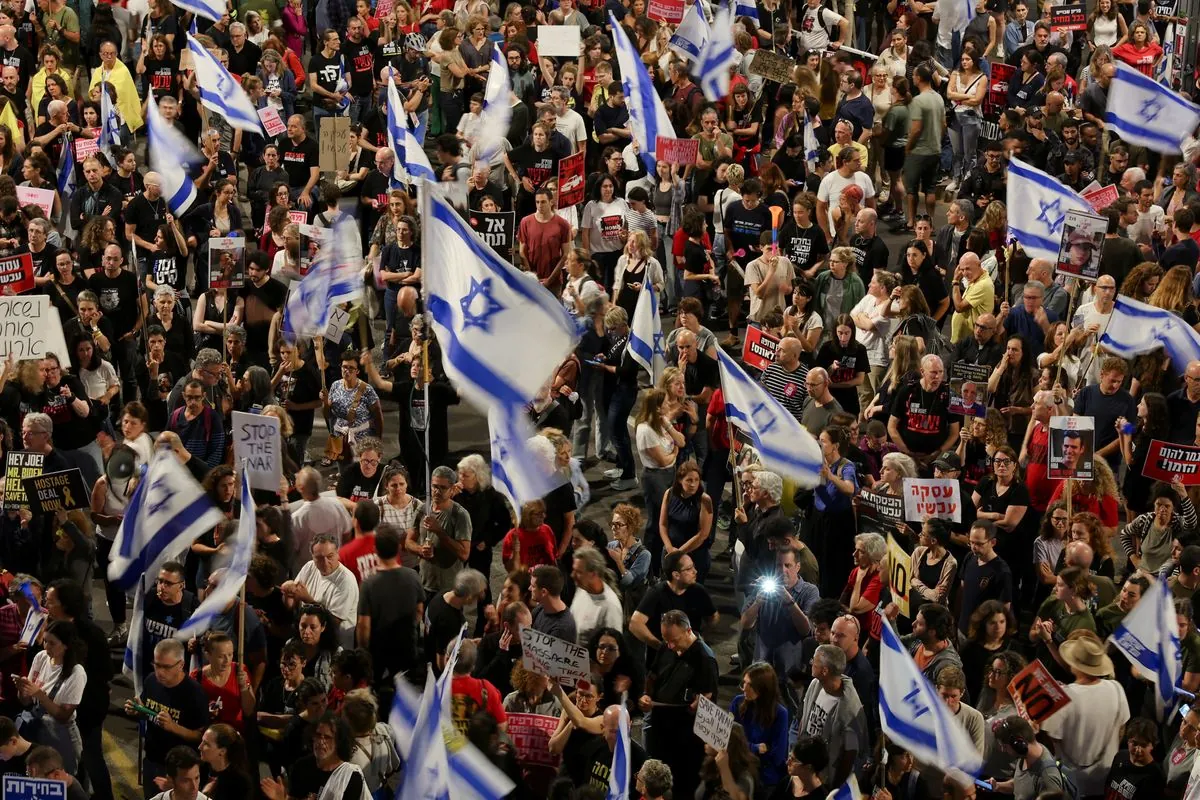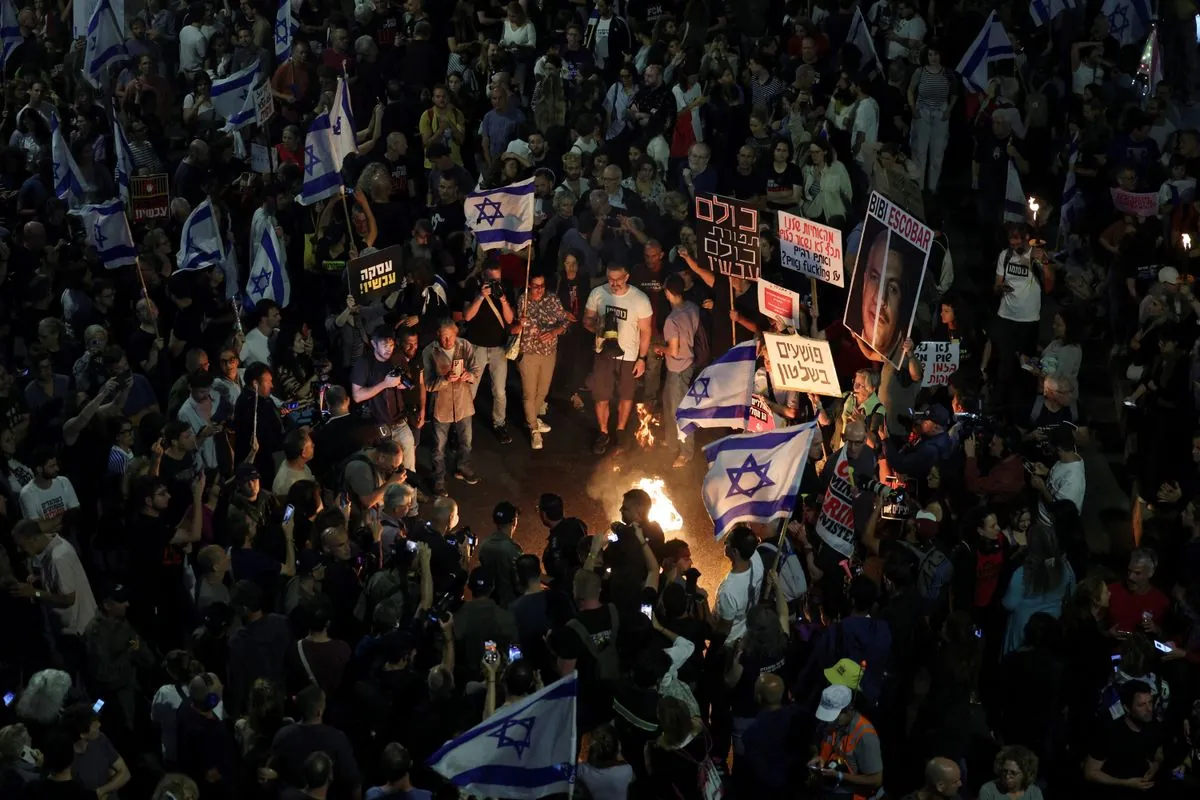Israeli Hostage Crisis Sparks Massive Protests Against Netanyahu
Six Israeli hostages killed in Gaza, triggering unprecedented protests and a general strike. Netanyahu faces mounting pressure to negotiate a cease-fire, while political divisions complicate the path forward.

In a significant development in the ongoing Israel-Hamas conflict, the reported deaths of six Israeli hostages in Gaza have ignited widespread protests and a general strike across Israel. This surge of public outcry marks the most intense domestic pressure on Benjamin Netanyahu since the conflict's inception nearly 11 months ago.
The conflict, which began on October 7, 2023, with a surprise attack by Hamas, has now entered a critical phase as Israelis demand action to secure the release of the remaining captives. Approximately 100 hostages are still held in Gaza, with about a third presumed deceased.

Sunday witnessed the largest demonstration in support of a hostage deal since the war's outbreak. Hundreds of thousands of citizens converged in central Tel Aviv, their chants of "Deal, now!" echoing through the streets. This massive turnout underscores the growing public sentiment favoring a cease-fire agreement, even if it means concluding the conflict.
Netanyahu's position remains precarious as he navigates complex political terrain. His government relies on support from ultranationalist parties, led by Finance Minister Bezalel Smotrich and National Security Minister Itamar Ben-Gvir, who staunchly oppose any deal that could end the war or release Palestinian prisoners convicted of attacks against Israelis.
"What he cares about is his political survival. His political survival with Ben-Gvir and Smotrich doesn't allow him to end the war and bring back the hostages."
The prime minister's stance has drawn criticism from various quarters, including key governing partners, top security officials, and even Israel's closest ally, the United States. U.S. President Joe Biden recently expressed dissatisfaction with Netanyahu's efforts to negotiate a deal, further intensifying the pressure on the Israeli leader.
Israel's diverse population and complex political landscape contribute to the challenges in reaching a consensus on the path forward. The country's mandatory military service requirement adds another layer of complexity to public sentiment regarding the conflict and hostage situation.
While the recent protests and general strike represent a significant show of public dissent, their impact remains limited by longstanding political boundaries. The demonstrations largely comprised liberal, secular Israelis who have previously opposed Netanyahu's leadership and policies.
As the toll of the war in Gaza mounts, with tens of thousands killed and extensive damage to infrastructure, Israel faces increasing international isolation. The situation is further complicated by the ongoing blockade of the Gaza Strip, in place since 2007.
Despite the challenges, some relatives of the hostages express hope that the recent events may serve as a catalyst for progress in negotiations. In a poignant eulogy for Hersh Goldberg-Polin, an Israeli-American captive, his father voiced optimism that his son's death might fuel efforts to bring home the remaining hostages.
As Israel grapples with this crisis, the world watches closely, hoping for a resolution that can bring an end to the suffering on all sides and pave the way for lasting peace in the region.


































